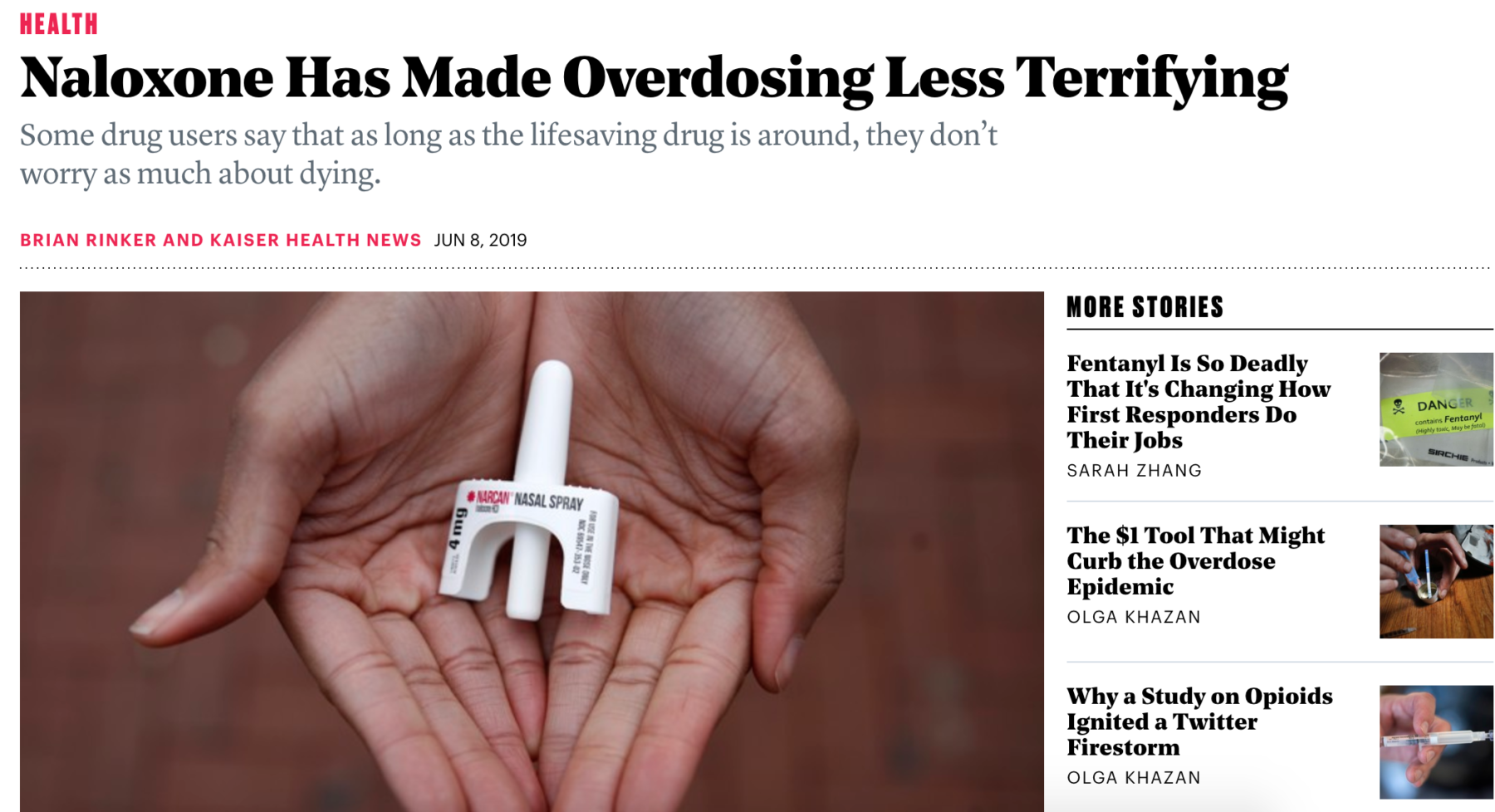On June 8, the Atlantic published a misleading story that suggests people who use drugs will seek out the potent opioid fentanyl because of the availability of naloxone, the overdose reversal medication. Titled “Naloxone Has Made Overdosing Less Terrifying,” the article makes a fundamental mistake. Naloxone doesn’t make overdose less terrifying; it makes it less deadly.
It’s these high-profile, harmful media portrayals that Changing The Narrative—a network of reporters, researchers and advocates prominently including journalists Maia Szalavitz and Zachary Siegel, Professor Leo Beletsky of Northeastern University and the Health in Justice Action Lab, and addiction medicine physician Dr. Sarah Wakeman, among many others—is seeking to address.
The Changing The Narrative website launched on June 10. It aims, according to the mission statement, to “help journalists and opinion leaders provide accurate, humane and scientifically-grounded information about this complex and often misunderstood terrain.”
“The idea for Changing the Narrative came from a series of conversations on Twitter, which found a group of us repeatedly reacting to media coverage that was factually inaccurate, presented ignorant, outdated and unscientific views about people with addiction or was otherwise so flawed that it made everyone with genuine expertise in the area cringe,” said Szalavitz.
The unfortunate chronic lapse in journalistic ethics when it comes to drug coverage does not necessarily come from a place of malice. (Though some of it does.) Rather, the problem more typically stems from a lack of education and due diligence in this area.
“When we informed editors and reporters about these problems, we found that most were genuinely horrified and wanted to do better,” said Szalavitz, “and we realized that there was a real need for a resource to help general assignment journalists and people new to the beat avoid common mistakes and find sources who are truly knowledgeable.”
That’s why, rather than merely criticizing the “tired narratives”—like “Addicted Babies” and “Opioid Crisis Is a White Problem”—that are so common in media, Changing The Narrative constructively helps journalists by providing expert sources, language advice and good examples to follow. The site’s Resources section features recommended articles on a range of subjects—including three Filter pieces alongside some from venues like The New York Times, the Guardian, the Marshall Project and Columbia Journalism Review.
Misinformation about drug use and addiction is clearly not confined to journalism; it also extends, for example, to government agencies and politicians. “Drug policy has long been a province of alternative facts, long before that concept entered popular lexicon,” said Leo Beletsky. “Many tropes about addiction aren’t just tired and inaccurate, but they cause real harm by perpetuating stigma, shaping harmful policies, and channeling resources to failed approaches. So Changing The Narrative isn’t just about shifting the vocabulary, it’s also about informing societal responses to problematic substance use that are effective and humane.”
The project developed out of an initial meeting held at Northeastern University in Boston in September, which Filter and many other stakeholders, such as former US “Drug Czar” Michael Botticelli, attended. Filter fully supports the important mission of Changing The Narrative, which complements our own.





Show Comments